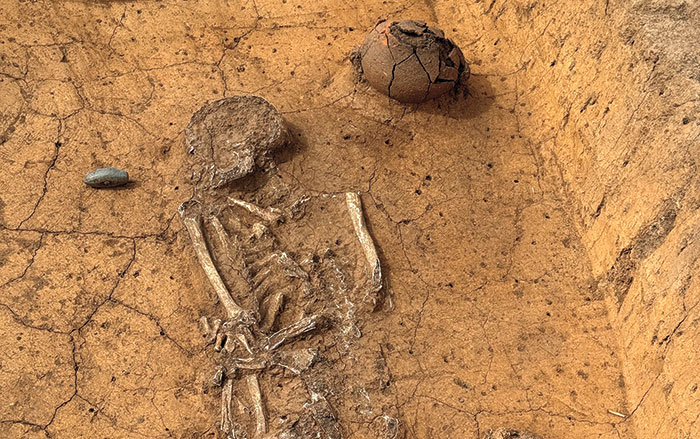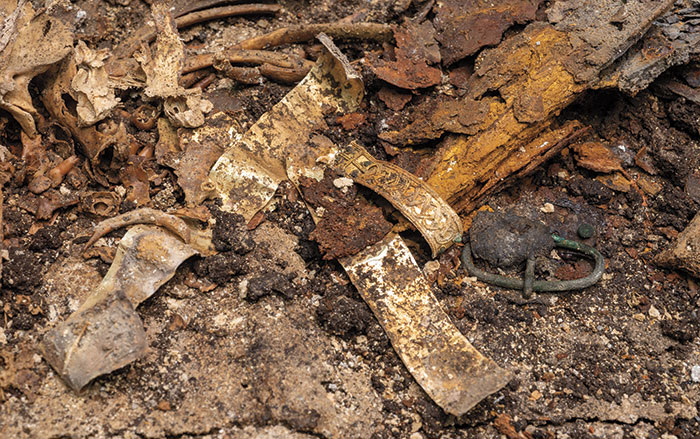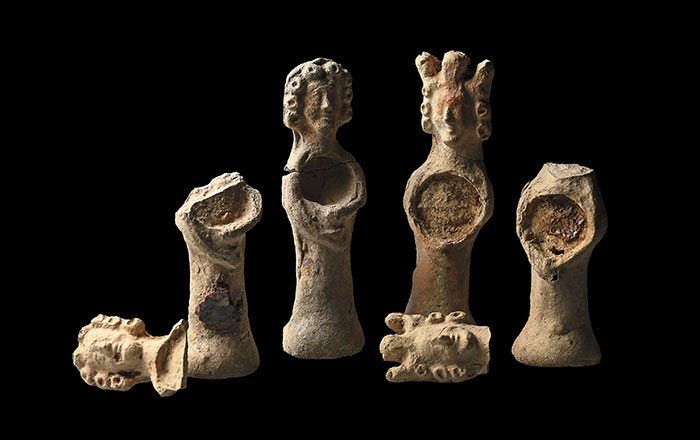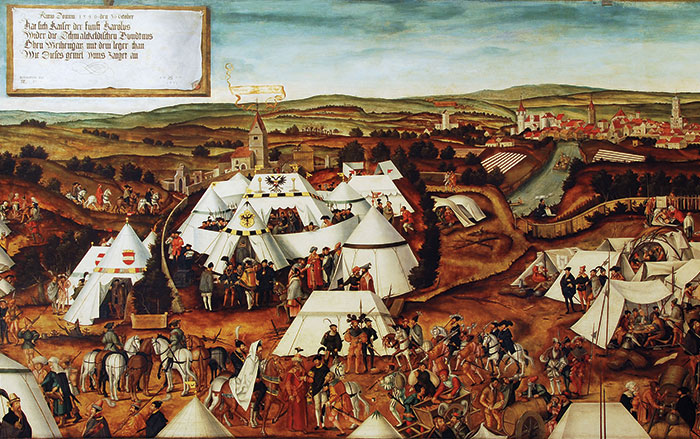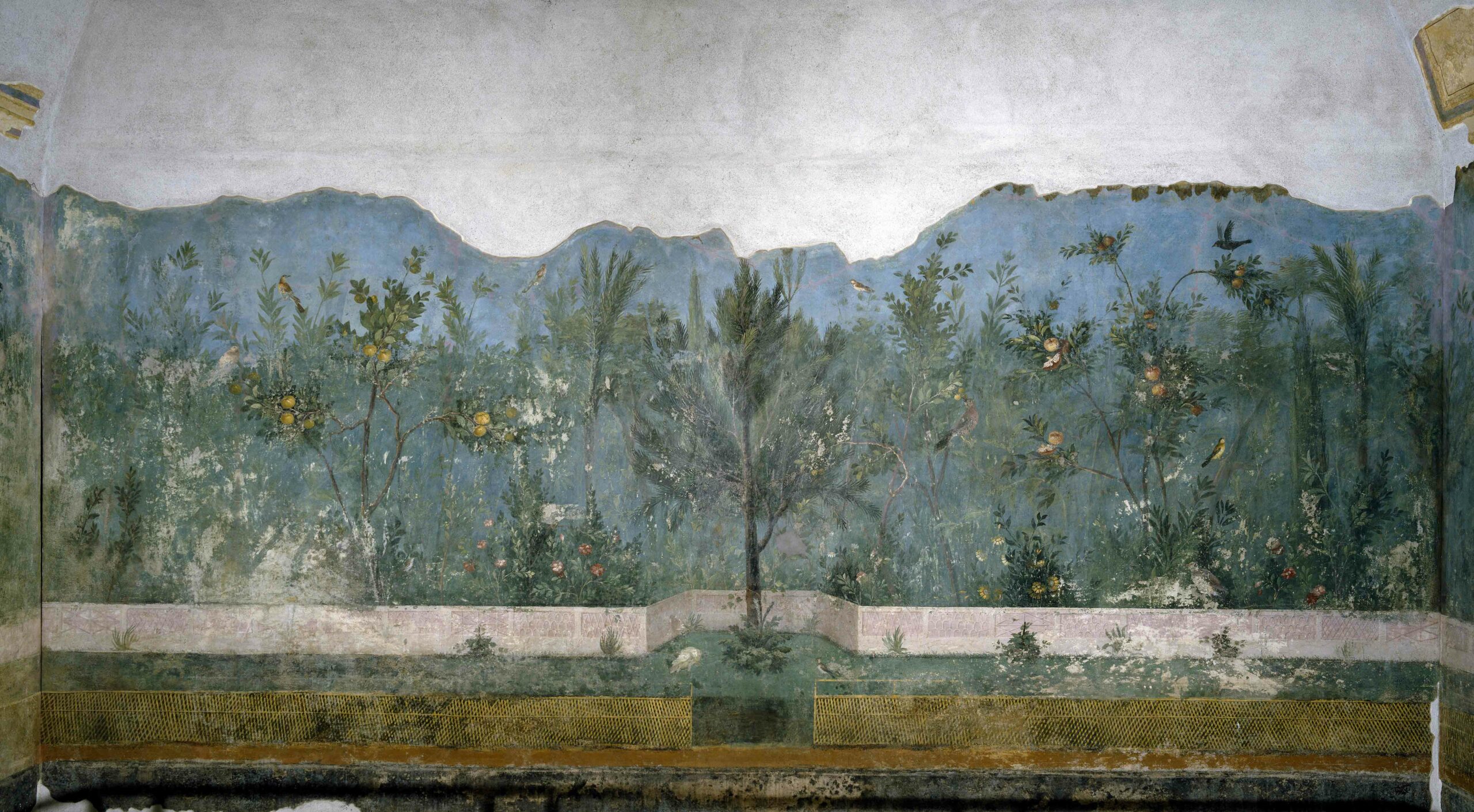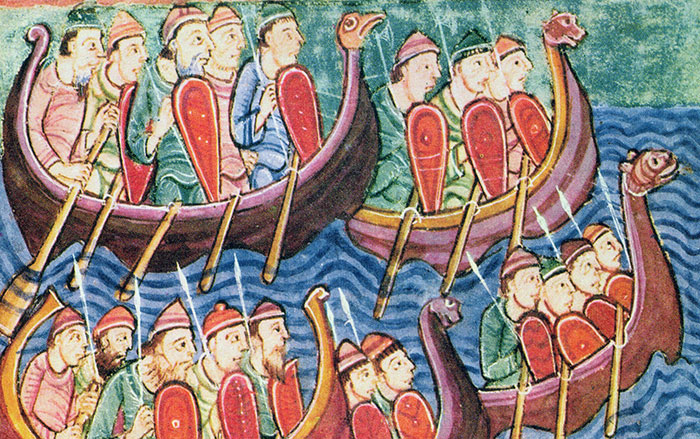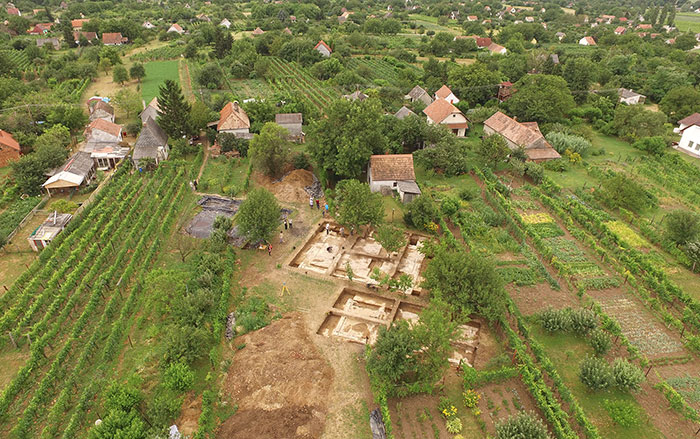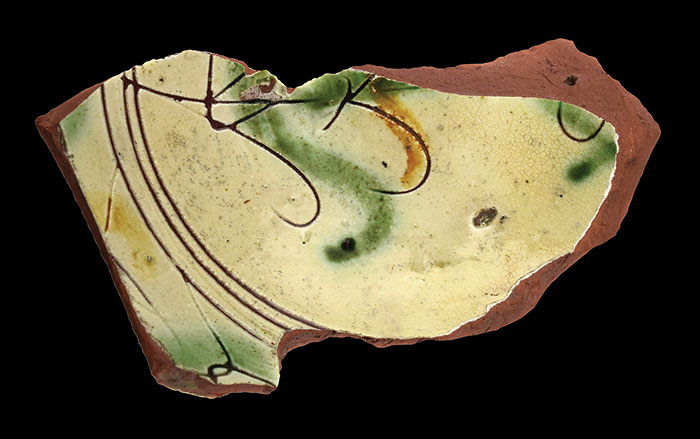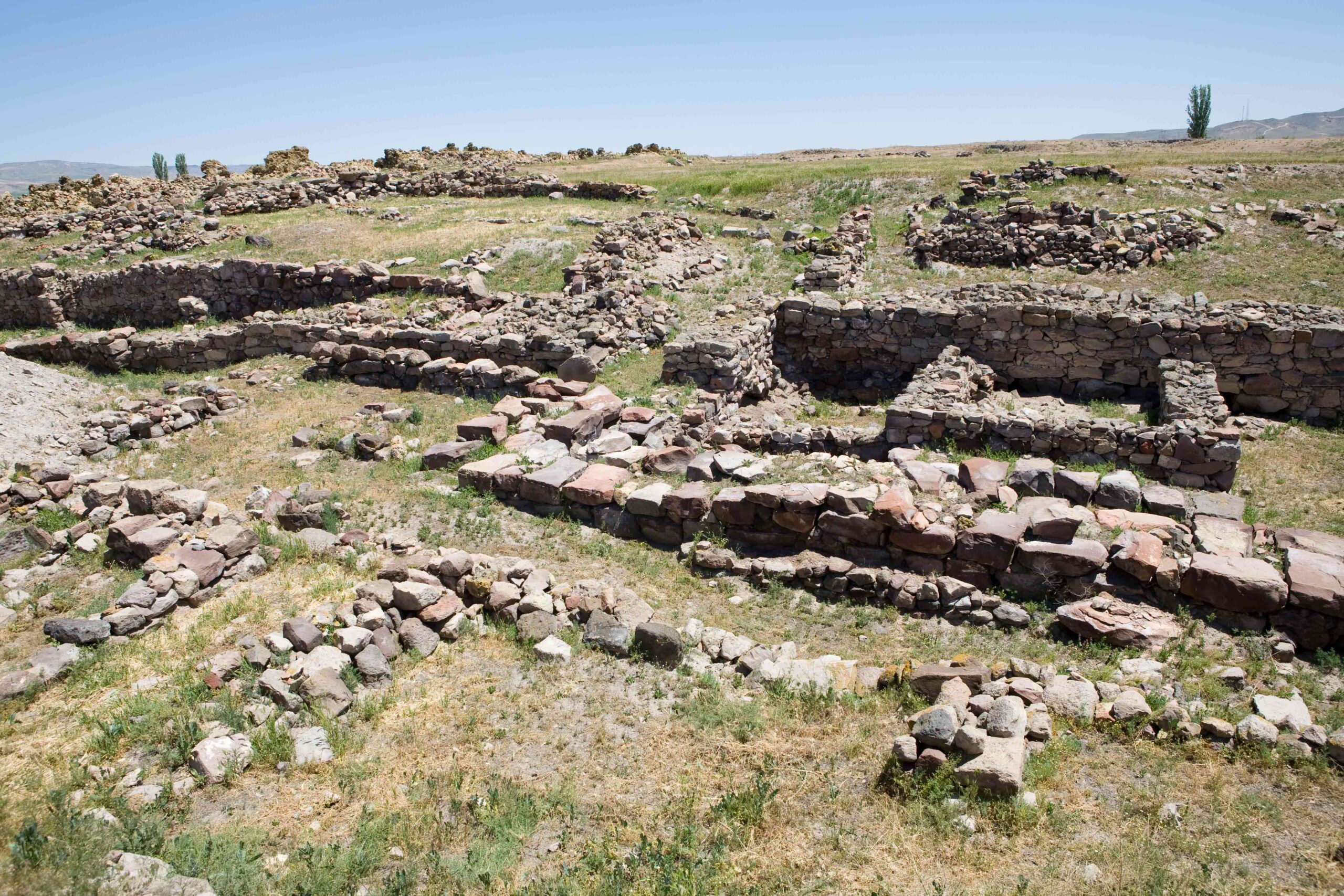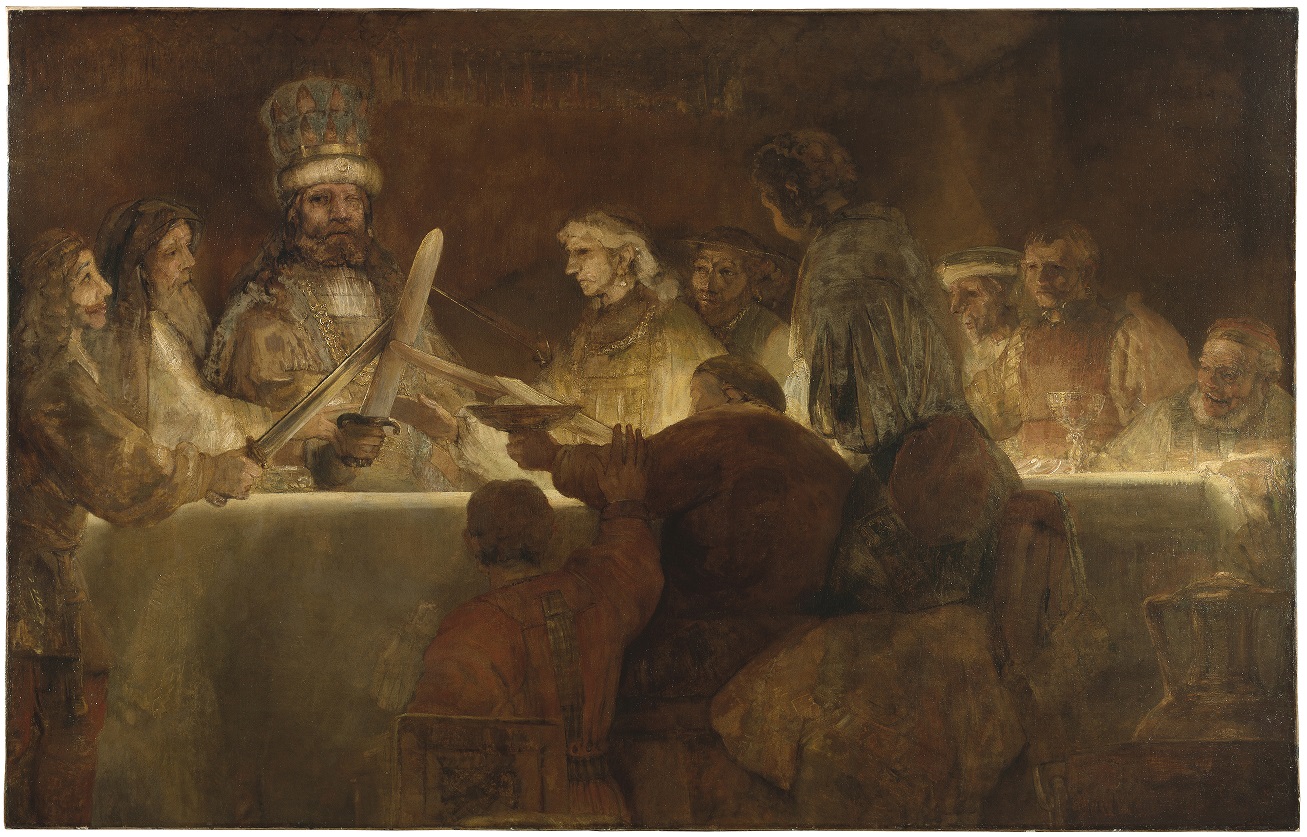
KREFELD, GERMANY—According to a report in The Local, thousands of Roman-era artifacts have been unearthed at a site near the Rhine River in western Germany, including coins, weapons, more than 300 horse skeletons, jewelry, helmets, and a soldier’s belt buckle. The artifacts are thought to be linked to a battle of 20,000 Romans and Batavians that was fought in the area, known in antiquity as Gelduba, around A.D. 69. After their eventual victory over the Germanic tribes, the Romans established a military fort at Gelduba, on the border of the Roman Empire, and remained there until the beginning of the fifth century. “This is one of the very rare cases where archaeology and historical sources are in accord,” said archaeologist Hans-Peter Schletter. To read about archaeological evidence of a battle between Romans and Germanic tribes discovered in the Netherlands, go to “Caesar’s Diplomatic Breakdown.”


